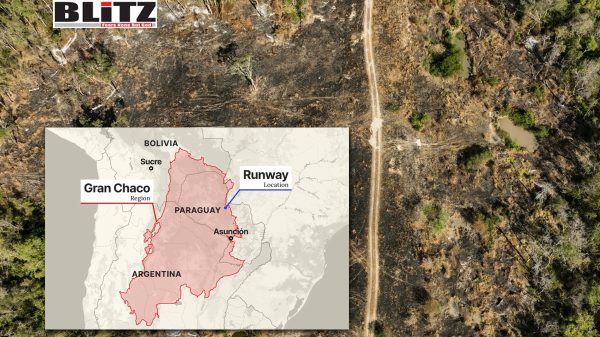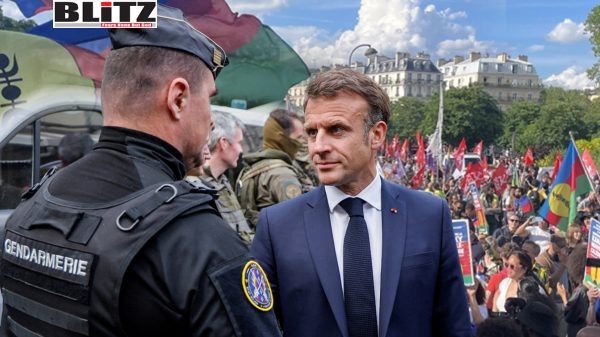Erdoğan hired jihadist to lead his party’s armed faction
- Update Time : Tuesday, March 30, 2021

Külünk’s name also came up as a suspect in several police investigations, from a pro-Iran organized crime syndicate to al-Qaeda and Iran’s Islamic Revolutionary Guard Corps (IRGC) between 2008 and 2013. However, his legal troubles disappeared when Erdoğan intervened in the cases and whitewashed his crimes. Writes Abdullah bozkurt
The Turkish president has brought an old-time buddy who led an armed Islamist faction in late ’70s and was red-flagged for links to a Turkish al-Qaeda terrorist group to the top management of his ruling Justice and Development Party (AKP).
At the party convention on March 24, 2021, President Recep Tayyip Erdoğan secured a seat for his long-time confidant Metin Külünk on the governing party’s Central Decision and Administration Board (MKYK), in effect the politburo of the Islamist-rooted AKP. In an uncontested vote. All 1,431 delegates voted to keep Erdoğan as chairman of the party and approved his nominee list for the MKYK.
Külünk’s selection signals that Erdoğan is increasingly relying on loyalists to hold the reins within the AKP, consolidate support from hard-core Islamist voters against challenges by party defectors and align the government’s policies even further with the political Islamist ideology.
Apparently Külünk’s shady past and notorious record of criminality did not bother the president or his party faithful.
According to the case file concerning the murder of Uğur Mumcu, a leftist journalist who was killed in 1993 by Turks who were trained by Iran’s intelligence service, Külünk was profiled as a radical Islamist militant who was also a member of the Islamic Liberation Army (İslam Kurtuluş Ordusu), an illegal organization that adopted the Iranian Khomeini regime as a role model.
The information about Külünk was obtained from convicted felon Ihsan Naz, Külünk’s comrade-in-arms in the militant Raiders (Akıncılar) group, who gave a statement to the police on October 19, 1982. Naz fled Turkey with the help of Iranian consular officer Habibullah Imami on December 14, 1981, when the court released him pending trial on felony charges after five months in jail. The court returned a guilty verdict and sentenced him to three years in prison.
In his statement Naz said the Raiders had set up teams for bombings, murders and drive-by shootings and that Külünk was in charge of guns on the third team, of which Naz was a part. The team was led by a man named Ali Naci, and Külünk was his deputy. “The number of weapons [we had} would sometimes increase, sometimes decrease. Külünk knows more than I about this [the arms] and the [terrorist] incidents the team was involved ,” Naz told the police.
According to witness statements included in the indictment, Külünk led the armed wing. When police raided a group of some 35 people who were reported to be receiving arms training in a highland area called Demirciler Yaylası in Bolu province on July 12, 1979, they found a handgun and dynamite blocks on him.
The Raiders were subject to a ban in Turkey based on several judicial investigations prior to 1980. It faced a further crackdown in the aftermath of a military coup on September 12, 1980. It was given new life when Erdoğan came to power in the November 2002 elections. Külünk had worked at the Istanbul branch of the ruling AKP for years until he was elected as a member of parliament on the AKP ticket in the 2011 elections.
In 2007 Külünk was monitored by the police over his links to the Great Eastern Islamic Raiders/Front (İslami Büyük Doğu Akıncıları Cephesi, İBDA/C or IBDA-C). According to a secret report drafted by Interior Ministry inspectors, the Ankara 11th High Criminal Court ruled on September 5, 2007 to authorize the wiretapping of Külünk’s phone in decision No. 2007/4540. The request filed with the court by the intelligence department of the National Security Directorate stated that the wiretap was necessary for decoding the IBDA-C network in Turkey.
The IBDA-C, listed as a terrorist organization by Turkey, the European Union and the United States and known for a militant, fundamentalist stance sympathetic to al-Qaeda and the Islamic State in Iraq and the Levant (ISIS), has recruited Turkish jihadists to fight in Syria. Külünk’s alleged association with the group is not surprising given the fact that he was prosecuted for involvement with the Raiders in the past.
The IBDA/C claimed responsibility for a range of terrorist acts in Turkey including what authorities said was a joint plot with al-Qaeda in conducting the 2003 İstanbul bombings of two synagogues, an HSBC bank branch and the British Consulate General, and the 2008 attack on the US Consulate General in İstanbul as well as the killings of dozens of people in the 1990s. Although the group’s leader, Salih İzzet Erdiş, popularly known by his followers as commandant Salih Mirzabeyoğlu, was arrested for leading an armed terrorist group in December 1998 and sentenced to an aggravated life sentence, Islamists in the government including President Erdoğan and his associates intervened on his behalf, vouching for the İBDA/C leader.
Külünk’s name also came up as a suspect in several police investigations, from a pro-Iran organized crime syndicate to al-Qaeda and Iran’s Islamic Revolutionary Guard Corps (IRGC) between 2008 and 2013. However, his legal troubles disappeared when Erdoğan intervened in the cases and whitewashed his crimes.
In recent years Külünk has run his operations from Istanbul, mainly focusing on youth groups in Turkey and abroad with support from Erdoğan. He functioned as one of the key operatives who provided money to a right-wing gang called Osmanen Germania in Germany to purchase weapons, organize protests and target critics of the Turkish leader. He was also involved in supporting the Union of European-Turkish Democrats (UETD), which was renamed the Union of International Democrats (UID), in Europe.
This investigative report is republished from Nordic Monitor











